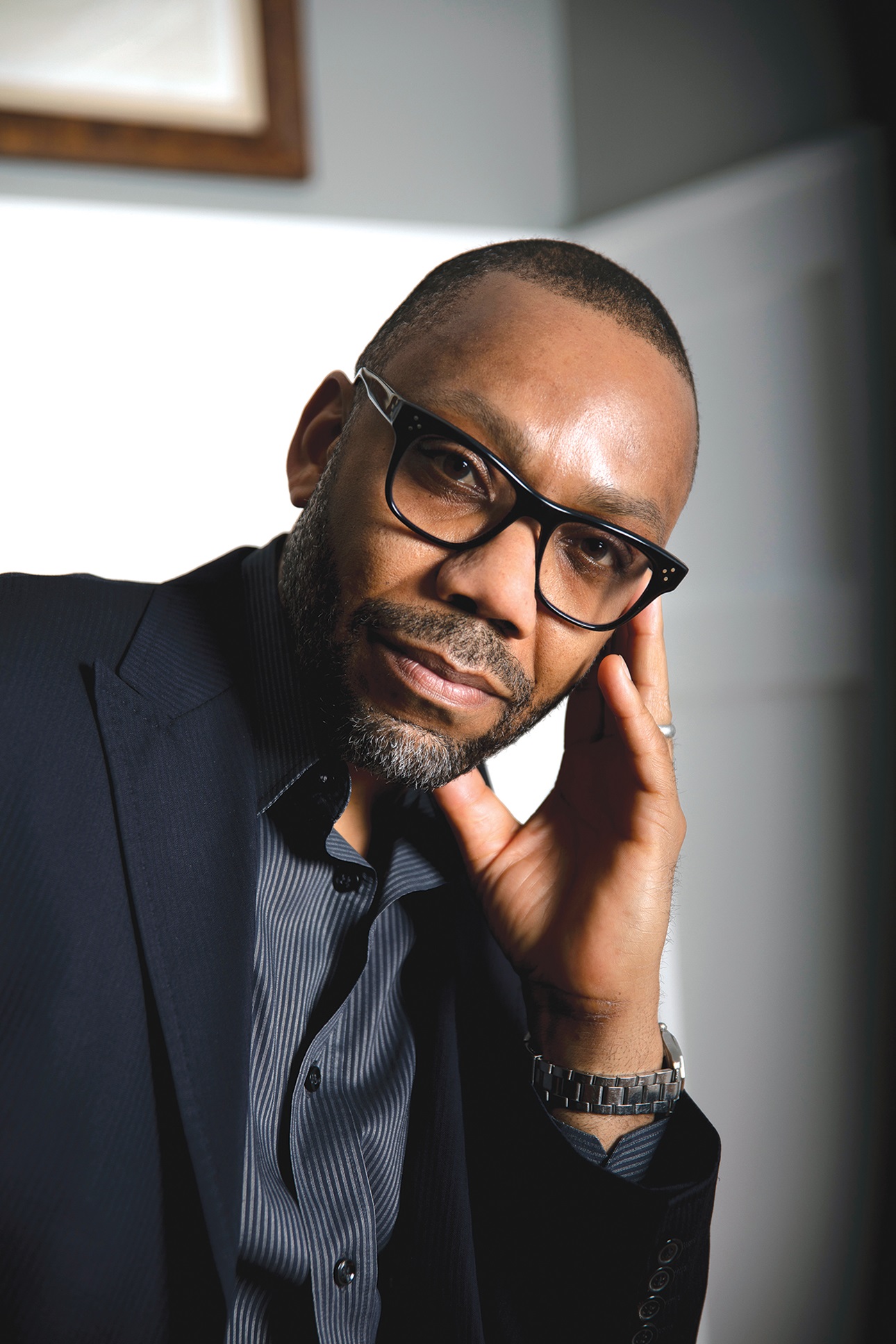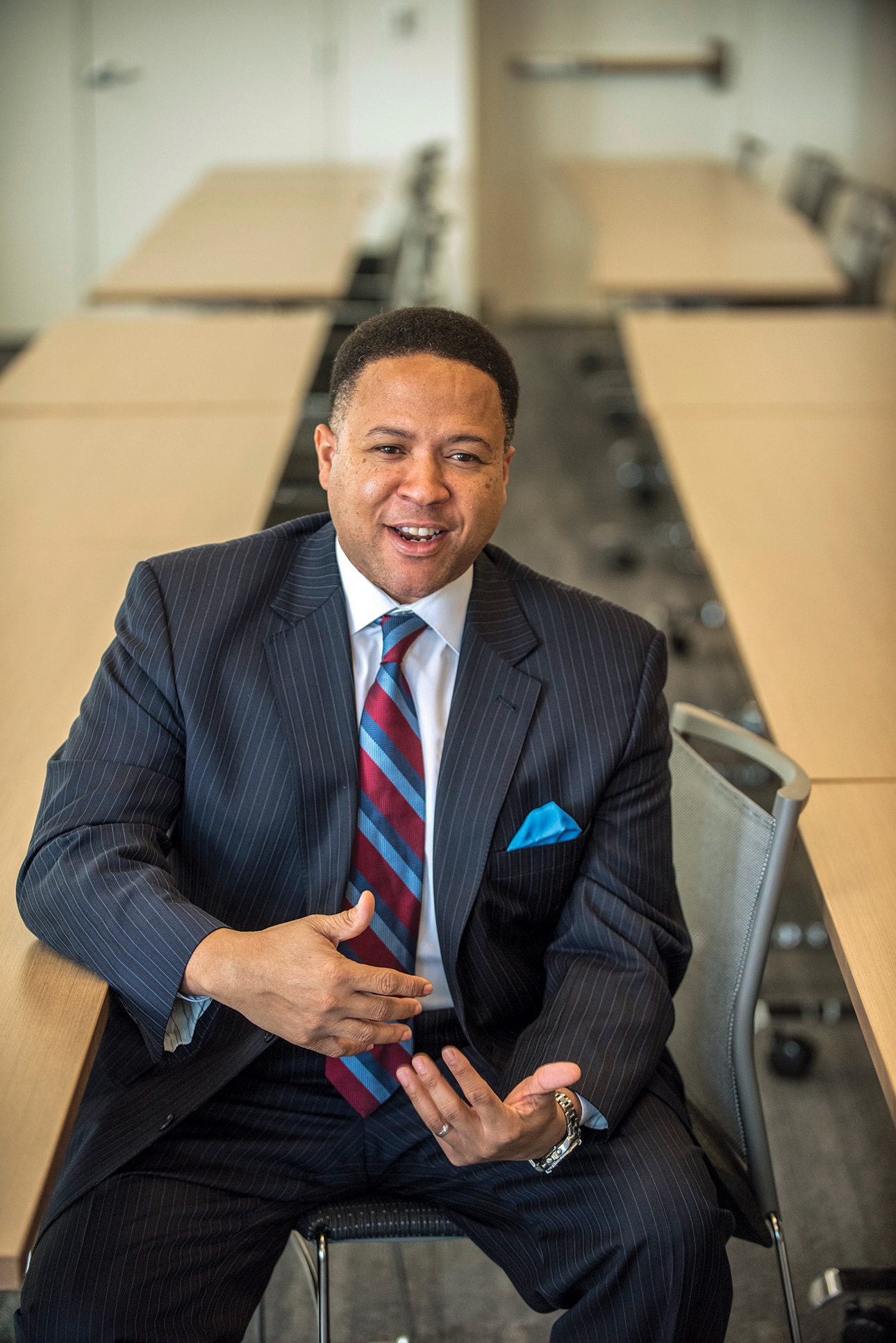Know Your Price: Valuing Black Lives and Property In Boston
Brookings Institution fellow and author Andre Perry highlights the structures creating persistent racial wealth gaps in America's cities - including ours.
June 5, 2020
Editor's Note: On June 5, 2020, the Boston Foundation welcomed author and Brookings Institution Fellow Andre Perry for a conversation sparked y his new book, Know Your Price: Valuing Black Lives and Property in America's Black Cities. We boiled down the wide-ranging discussion below, and you can read the full transcript of the conversation between Orlando and Andre, and then the panel discussion which brought in Glynn Lloyd, the Executive Director of the Foundation for Business Equity, Iván Espinoza-Madrigal, Esq., Executive Director, Lawyers for Civil Rights, and Soni Gupta, Director of Neighborhoods & Housing, at the Boston Foundation here.
A Most Crucial Conversation
Valuing Black Lives and Property
The event had been planned for some time. Two friends, Orlando Watkins, the Boston Foundation’s Vice President for Programs, and Andre M. Perry, Brookings Fellow and author, would get together to discuss Perry’s latest book, Know Your Price: Valuing Black Lives and Property in America’s Black Cities. They’d be joined by a live audience eager to discuss the issue and how it plays out in Boston. Then COVID-19 hit and everything changed. The event was quickly revamped to be one of the first webinars the Foundation presented after the decision was made to temporarily cancel all in-person events. Hundreds registered online. Then, America watched in horror and outrage while George Floyd was murdered right before our eyes—and what Watkins called a “frank and thought provoking conversation about the economic and social condition of Black America” became the most crucial conversation the two friends could possibly have.
Watkins began by referencing Floyd’s murder and other race-based violence, calling them “the most recent manifestations of the historic and persistent inequities that plague Black communities,” then went on to trace the deaths, humiliations and injustices that began 400 years ago. “We know that slavery, America’s original sin, is the cornerstone for all of these discriminatory policies.”
He opened the discussion by asking Perry why his new book is so relevant to this moment in time. “The COVID pandemic really exposed the underlying conditions that make some communities more vulnerable to death because of the disease: overcrowded, substandard housing; folks that don’t have health care and limited access to benefits; and good pay,” responded Perry. “Those are the areas where you see the coronavirus spreading rapidly. And those are the same areas in which police violence has been leveled against Black Americans in Black neighborhoods. And so we have to be clear that the devaluation of lives is directly connected to how we police people.”
Perry’s book shows that the deliberate devaluation of Black people and their communities has had far-reaching, negative economic and social effects. “A lot of my research, which anchors the book, examines home prices in Black neighborhoods and compares them to home prices in White neighborhoods. We control for education, crime, walkability… And we found that homes in Black neighborhoods are devalued by 23 percent, about $48,000 per home. Cumulatively, there is $156 billion in lost equity. That’s the money people use to send their kids to college, to start businesses. Remember, most people start their businesses using the equity in their home.”
The research also found that businesses owned by people of color in Black majority neighborhoods actually score higher on Yelp
than their White counterparts, but get lower revenue largely because people don’t want to
go into their neighborhoods.
“For me, it goes to what our elders used to say: ‘Our ice is just as cold.’ If you don’t assess quality, you distort the market in a way that suppresses the economic mobility of the residents in it. And so, for me, the book shows that our ice is just as cold. We have quality businesses, quality homes, quality leadership. Our electoral strength is strong. However, nothing grows without investment. So a goal is to drive investment into the quality assets that we know are out there.”
Watkins went on to ask Perry about the fact that research commonly uses the White male as an anchor against which all progress is measured. You write, “Are they consciously or unconsciously asking the question: ‘Why can’t you be more like White people?’”
“Yes,” replied Perry. “I work in a think tank. We do research every day. In the think-tank world—in the university world—we’re constantly showing disparity research. If you’re talking about who’s in the middle class and you just use earnings as the metric, you are burying your head in the sand as to how people became middle class.” If you know anything about housing policy you know that in the ‘30s, Blacks lived in red-lined areas and were denied low-interest home loans.
“Comparing a Black person who earns $150,000 to a White person who makes the same without according for that wealth difference misses the mark. More importantly, we’re so wedded to this idea that Blacks have to achieve like White people in order to be good. In my book, I try to show the strength in Black communities. We have reams of data that show that Black people are suffering because of structural inequality. I want to restore what’s been extracted by racism by showing exactly how much Black assets have been devalued. This debt must be paid. But if you invested in Black communities, you would see significant growth. That’s the thing that is promising when I talk about devaluation. They’re really underappreciated assets. You add water. It will grow. No question. And so, we just need for folks to make it rain on Black communities.”
A recent example of structural racism, Perry said, is the way the CARES Act and the PPP loan program rolled out: 95 percent of Black businesses did not receive a loan. “We need to look at the banking industry and how we distribute resources. We tend to compartmentalize and say that criminal justice is separate from the economy and the economy is separate from housing, and housing is separate from education. But let’s be clear: There’s nothing that says that a Black man doesn’t belong in an economy more than a police officer snuffing him out in the middle of the street.
“We need to dramatically change policing and the criminal justice system, but those same attributes are harbored in other sectors as well. Economic injustice has killed far more people than police. Bad health-care policies have killed more people than police. I love what’s happening in criminal justice and policing. Other sectors need to learn from that.”
The conversation expanded to include comments from three Boston-based experts in housing, business and social justice. The first, Glynn Lloyd, Executive Director of the Foundation for Business Equity, has partnered with the Boston Foundation on the creation of the Business Equity Fund, which supports Black and Latinx businesses. He spoke to the challenges small businesses face.
“I love Andre’s idea about ‘making it rain’ on Black communities. In Greater Boston, we’re trying to figure out ways to get capital to Black and Latinx businesses, but another important business tool is advice. Really good advice. Orlando and I have been working together on getting businesses not only capital but experienced advice from successful business owners.”
Soni Gupta, the Boston Foundation’s Director of Neighborhoods and Housing, addressed the issue of equity and home ownership. “I think Andre is absolutely right on the importance of building home ownership. The 2008 market crash wiped out many of the gains in Black home ownership and we don’t want to see that happen again.” She emphasized the importance of developing products that provide affordable home ownership through lower interest rates.
“We know that people are struggling with cost burdens in the rental market too,” she added. “Almost half of renter households are paying more than 30 percent of their income toward rent. The eviction moratorium was enacted very quickly by the legislature, but we hope some form of that will continue.” She went on to discuss various options to encourage Black home ownership, including the Tenant Option to Purchase Act (TOPA), and ownership by entities, such as a community land trust.”
Iván Espinoza-Madrigal, Esq., Executive Director of Lawyers for Civil Rights, spoke next. He addressed the brutal murder of George Floyd and the fact that rights must be respected, but went beyond the issue of police violence. “We need to get to the root of many of these problems, which is the tremendous wealth gap and disparities that exist in our communities. The wealth building component is intimately connected to the civil rights struggle.” He reminded viewers of the Color of Wealth study from the Federal Reserve Bank of Boston, which showed that White households have a median household wealth of $247,000 and Black households have $8. “The levers that you need to pull for housing are different than the levers you need to pull for economic development or criminal justice, but the underlying principles are the same.”
Perry ended the webinar by saying, “I want to drive investments toward people like Glynn, toward the work of Iván, toward the things that Soni and so many others are talking about. There are positive assets in our communities that are not invested in. It’s as simple as that. The journey I’m on is to help identify the strengths in these communities that are deserving of investment.”


